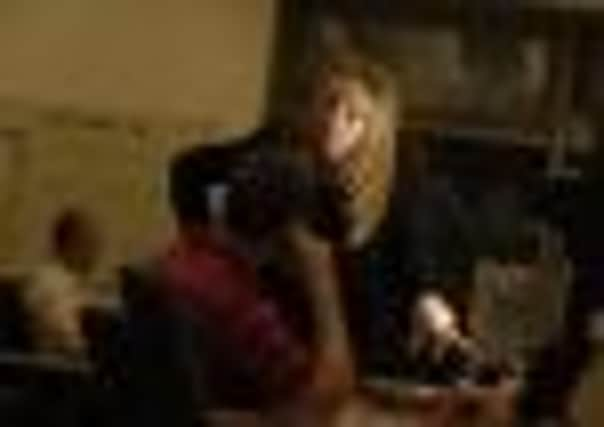Bullying claims rock Scots schools watchdog


An internal survey of staff working for schools inspectorate Education Scotland found one in ten said they had been bullied at work within the past year, while just over a third thought the quango was well managed.
Although many employees responded positively about the job they are asked to do, 6 per cent of staff said they wanted to leave “as soon as possible”, and 15 per cent said they hoped to leave within the next year.
Advertisement
Hide AdAdvertisement
Hide AdTeachers’ leaders described the findings as “hugely concerning” and said uncertainties remained about Education Scotland’s role in both producing curriculum material and carrying out inspections into how they are being taught.


Formed in July last year, the organisation brought together the work of Learning and Teaching Scotland (LTS) and HM Inspectorate of Education (HMIE). It is responsible for improving attainment in the country’s schools.
The body has a budget of more than £30 million a year and is responsible for education from early years through to adult learning.
The staff survey, which was carried out late last year, found fewer than half were proud to work for Education Scotland, with only 22 per cent saying that changes were usually made for the better.
Ann Ballinger, general secretary of the Scottish Secondary Teachers’ Association, said the survey’s findings raised questions over how the organisation would affect change in the country’s schools.
She said: “This report is hugely concerning.
“One of the biggest issues relating to school inspections is that people often feel they’re being bullied or harassed. If that’s the culture within Education Scotland, it’s hugely worrying for schools.
“I think it’s too early to say whether setting up Education Scotland was a mistake, but theirs is not a job I would like to have.
“There is an absolute need for them to be seen to be scrupulously fair about everything, and that means they might have to be critical of themselves from time to time.”
Advertisement
Hide AdAdvertisement
Hide AdDr Bill Maxwell, Education Scotland’s chief executive and a former educational psychologist and head of HMIE, has previously spoken of tackling the problem of Scotland’s “coasting” schools.
However, there remain questions about his own organisation and what many feel is the centralisation of power under its remit.
Larry Flanagan, incoming head of the Educational Institute of Scotland, the country’s largest teaching union, said: “We have had concerns previously about the Education Scotland juggernaut and that it’s being positioned strongly as an arm of government.
“The whole thing happened without any real consultation and there’s some concern that they are in a very powerful position to direct Scottish education – that may be what [education secretary] Mike Russell wants.
“In the past, there was a degree of checks and balances, but in one sense, we now have a situation where they are almost inspecting their own efforts. I think the jury is still out on how effective the body will be.”
As well as inspecting the country’s schools, Education Scotland is charged with helping deliver Curriculum for Excellence, the new programme that was introduced in 2010.
The organisation’s survey was completed by 260 employees – 72 per cent of its workforce. Despite concerns among many about the way the organisation is run, 95 per cent of staff said they found their work interesting, while 84 per cent said it gave them a sense of accomplishment.
But fewer than 40 per cent of respondents thought the body was well managed as a whole, with one in ten reporting they had been bullied and 9 per cent that they had suffered discrimination at work.
Advertisement
Hide AdAdvertisement
Hide AdScottish Labour’s education spokesman, Hugh Henry, said: “It’s worrying that so many staff in Education Scotland have such a negative view of their organisation.
“Allegations of bullying need to be taken seriously and Education Scotland needs to realise that it has an influential role in Scottish education and needs to set the best possible standards.
“I do have concerns about such a hybrid organisation, and I’m not sure the combination of the inspectorate and what was previously delivered by LTS will not turn out to be a short-sighted cost-saving measure, which will have a detrimental effect on Scottish education.”
A spokesman for Education Scotland said the staff survey had been carried out at a time when the organisation had only recently been set up.
He said: “We should keep in mind that this survey took place immediately after the amalgamation that set up Education Scotland. This may explain why some individuals have reflected uncertainties in their responses.
“However, action plans are now in place to address these and other issues. There are several aspects of this survey in which Education Scotland has scored well and we continue to work to bring together all aspects of our predecessor bodies.”
A spokesman for the Scottish Government declined to comment, insisting the staff survey was a matter for Education Scotland.
Last week, Education Scotland’s chief executive entered the row over the introduction of Scotland’s new exam system, which is being phased in as part of Curriculum for Excellence.
Advertisement
Hide AdAdvertisement
Hide AdDr Maxwell said East Renfrewshire Council’s attempts to delay the introduction of the new exams, which will succeed Standard Grades in Scotland’s schools, risked “undermining” confidence in the new set-up.
The Scottish Qualifications Authority is currently in the process of introducing the new National 4 and National 5 qualifications, which will come into force in 2013-14.
However, teaching unions have called for individual schools to be given the power to postpone their introduction, amid fears that teachers are not ready.